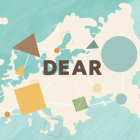Global Education Guidelines
These guidelines support educators to successfully design, carry out and evaluate global education initiatives and learning activities. Identifying existing global education approaches, best practices and challenges that take into account on-the-ground cultural, geographic, social and economic realities, it can also contribute to education policies.
Beyond current best practices, it can be used as inspiration or a “pedagogical coaching tool to help establish global education approaches where they do not yet exist and enrich the existing ones.” In the spirit of global education, it aims to enable educational processes that “open the path to a better understanding of an increasingly globalised world” and foster civic engagement in finding solutions to common challenges.
Based on inputs and not always unanimous opinions and insights from networks of practitioners, it addresses the professional responsibilities of educators and teachers, organisations, schools and other institutions to raise awareness and critical knowledge on worldwide issues - both in formal curricula and in non formal spaces.
This 3rd edition (2019) of the Global Education Guidelines consists of five chapters:
- WHAT IS GLOBAL EDUCATION?
The guide starts with the fundamentals of global education, including its holistic approach and transformative learning process.
- WHY GLOBAL EDUCATION?
Chapter B underlines why it is important for learners to critically understand the interconnectivity of worldwide problems. Beyond the nation-state, global education focuses on a concept of community, which embraces local, national, regional and international contexts.
- GLOBAL EDUCATION AND GLOBAL COMPETENCE
New to this edition, this chapter guides educators to use competence-based learning based on Council of Europe (CoE) and OECD competence frameworks. It describes how the CoE’s “Competences for Democratic Culture” can boost their global education practice and guide their assessments.
- METHODOLOGY AND METHODS FOR PRACTICING GLOBAL EDUCATION
With concrete examples, activities and step by step guidance, Chapter D details a number of methodological aspects and elements of participatory processes.
- MEDIA LITERACY
New to this edition, this chapter addresses the effects of media on global society and how to guide young people in responsible online civic engagement.
Annexes include the Maastricht Global Education Declaration, the European Strategy Framework Document, the Council of Europe’s Global Education Charter and other international documents that support global education.
The Global Education Guidelines are an initiative of the North South Centre of the Council of Europe, and respond to a need expressed by the Global Education network. The first edition dates to 2008.
The Guidelines are also available in in French, Spanish and Serbian.
Document details
Other languages
Global Education Guidelines FR.pdf
français (1.99 MB - PDF)Global Education Guidelines ES.pdf
Español (4.54 MB - PDF)Global_EducationGuidelines_Serbian.pdf
Others (15.15 MB - PDF)
Log in with your EU Login account to post or comment on the platform.